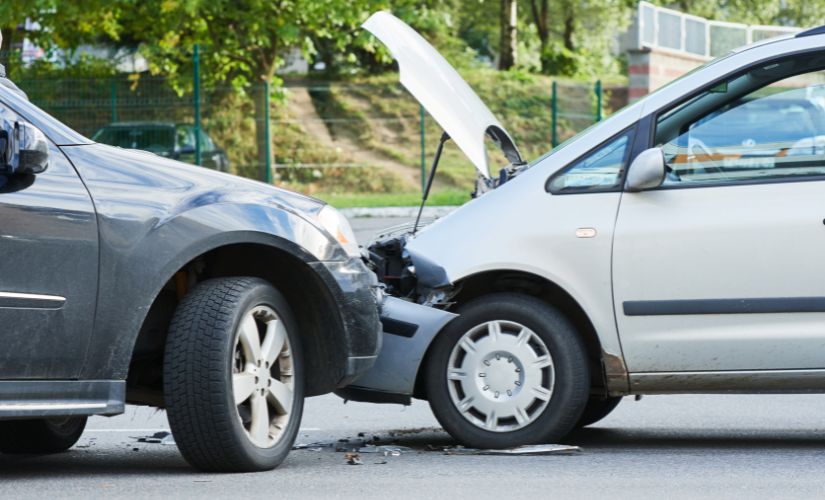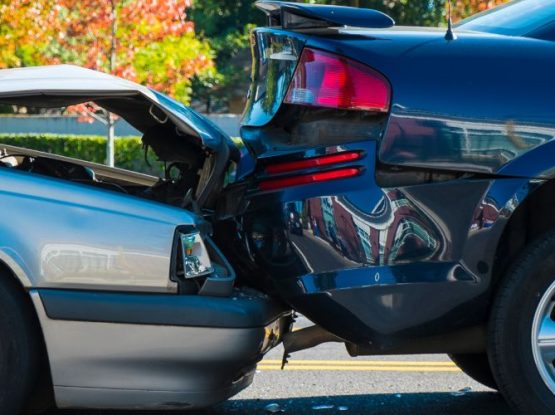Car accidents can change your life in an instant. Beyond the physical pain and emotional distress, victims often face mounting medical bills, lost income, and long-term disruptions to their daily lives. One of the most important parts of recovering after a crash is understanding what types of damages you can claim through a personal injury lawsuit or insurance settlement.
If another driver’s negligence caused your accident, you have the legal right to pursue compensation for all losses you’ve suffered. However, not all damages are the same — some are easy to measure in dollars, while others require careful evaluation and legal expertise to prove.
This comprehensive guide explains the main categories of damages you can recover after a car accident, how they’re calculated, and what factors influence the amount you may receive.
Understanding the Purpose of Damages
The legal concept of “damages” refers to the monetary compensation awarded to an injured person to make them “whole” again — or as close to their pre-accident condition as possible. Damages serve three primary goals:
- Compensate you for measurable financial losses.
- Acknowledge your physical and emotional suffering.
- Hold negligent parties accountable for their reckless behavior.
There are two main categories of damages — economic and non-economic — and in certain cases, a third type known as punitive damages may also apply.
Economic Damages – The Tangible Financial Losses
Economic damages are the easiest to calculate because they involve clear monetary values. These cover the actual financial losses you’ve incurred due to the accident, as well as projected future expenses tied to your injuries.
Medical Expenses
Medical costs are usually the largest part of a car accident claim. They include:
- Ambulance and emergency room fees
- Hospital stays and surgeries
- Doctor visits and follow-up care
- Prescription medications
- Physical therapy and rehabilitation
- Assistive equipment like wheelchairs or braces
- Long-term care for severe or permanent injuries
It’s critical to keep all medical records and bills. These documents serve as proof of the extent and cost of your treatment. In serious cases, your attorney may also include the estimated future medical costs if you’ll require ongoing care, surgeries, or therapy.
Lost Wages and Loss of Earning Capacity
If your injuries keep you from working, you can claim compensation for the income you lost during your recovery. For example, if you missed two months of work due to a broken leg or back injury, you’re entitled to recover your regular wages or salary for that period.
However, some victims face permanent disabilities that limit their ability to earn money in the future. In these cases, your lawyer can pursue loss of earning capacity, which reflects how your future income potential has been reduced by the injury. Proving this often involves expert testimony, employment records, and economic projections.
Property Damage
Property damage covers the cost of repairing or replacing your vehicle and any personal belongings damaged in the crash. This includes:
- The cost to repair your car
- The fair market value of your vehicle if it’s totaled
- Items such as cell phones, laptops, or child car seats that were damaged in the collision
Keep detailed repair estimates, photographs, and receipts — these all strengthen your claim.
Out-of-Pocket Expenses
Sometimes accident-related costs don’t fit neatly into other categories. You may be reimbursed for:
- Transportation to and from doctor visits
- Rental car fees
- Costs for home modifications (wheelchair ramps, shower handles, etc.)
- In-home assistance for daily activities while recovering
These smaller expenses can add up quickly, so it’s important to keep track of every payment you make related to your recovery.
Non-Economic Damages – The Human Impact
Not all losses can be measured by receipts or invoices. Non-economic damages recognize the intangible suffering that affects your quality of life after a car accident.
Pain and Suffering
This includes the physical pain, discomfort, and ongoing hardship caused by your injuries. It accounts for chronic pain, loss of mobility, difficulty sleeping, and reduced enjoyment of life. Insurance companies often try to minimize pain and suffering claims, but your attorney can help document your experience using medical reports, pain journals, and testimony from healthcare providers or family members.
Emotional Distress and Mental Anguish
After a traumatic accident, many victims experience emotional and psychological symptoms such as anxiety, depression, or post-traumatic stress disorder (PTSD). These conditions can affect relationships, work, and daily living. California law allows compensation for mental anguish if it stems from the accident and its consequences.
Loss of Consortium
“Consortium” refers to the companionship, affection, and support between spouses or family members. If a serious injury changes your ability to maintain your relationship — emotionally, physically, or sexually — your spouse may be able to claim loss of consortium damages.
Loss of Enjoyment of Life
A severe injury may prevent you from participating in hobbies, sports, or social activities you once enjoyed. Loss of enjoyment damages reflect the reduction in your overall quality of life and the limitations placed on your personal happiness.
Punitive Damages – When Negligence Becomes Recklessness
Punitive damages are not meant to compensate the victim but rather to punish the wrongdoer for egregious behavior and deter similar misconduct. These are awarded in rare cases involving gross negligence or intentional wrongdoing. Examples include drunk driving, street racing, or deliberately causing an accident.
How Damages Are Calculated
Determining the total value of a car accident claim involves careful evaluation. Insurance companies use formulas and multipliers to estimate pain and suffering, while attorneys focus on evidence, case law, and expert assessments.
- Severity of injuries
- Length of recovery
- Permanent disability or disfigurement
- Emotional and psychological impact
- Fault and negligence under California’s comparative negligence law
The Importance of Evidence in Proving Damages
Even if your injuries and losses are legitimate, insurance companies require proof before paying fair compensation. The more evidence you have, the stronger your case. Examples include:
- Medical records and doctor statements
- Receipts and invoices
- Photographs of the accident scene and injuries
- Witness statements
- Employment records showing missed work
- Expert opinions from specialists and reconstruction professionals
Common Mistakes That Reduce Compensation
Many accident victims unknowingly make errors that hurt their claims. Avoiding these pitfalls can preserve your right to full recovery:
- Delaying medical care
- Giving recorded statements too soon
- Posting on social media
- Accepting a low settlement offer
- Not hiring an experienced attorney
Why Legal Representation Matters
While you can technically file a claim on your own, handling negotiations with insurers is challenging — especially when you’re recovering from injuries. Insurance companies use strategies designed to reduce payouts, such as blaming you for the accident or downplaying your suffering.
A qualified car accident lawyer will investigate your accident thoroughly, gather and preserve critical evidence, calculate both economic and non-economic damages, negotiate aggressively with insurers, and take your case to court if necessary.
Getting the Compensation You Deserve
Recovering after a car accident takes more than medical treatment — it requires understanding your legal rights and demanding fair compensation for every loss. From medical expenses to emotional trauma, every category of damage tells part of your story and demonstrates how the accident has affected your life.
You shouldn’t have to face this process alone. Whether you were injured in a car, truck, or motorcycle crash, the right legal team can help you rebuild your life and secure the financial stability you deserve.
Contact Motorcycle Accident Attorney Orange County
If you or a loved one has been injured in a car or motorcycle accident in Southern California, reach out to Motorcycle Accident Attorney Orange County for a free consultation. Their experienced legal team understands how devastating collisions can be — physically, emotionally, and financially — and they are dedicated to fighting for full and fair compensation on your behalf.
Contact Motorcycle Accident Attorney Orange County today to discuss your case and protect your rights.



